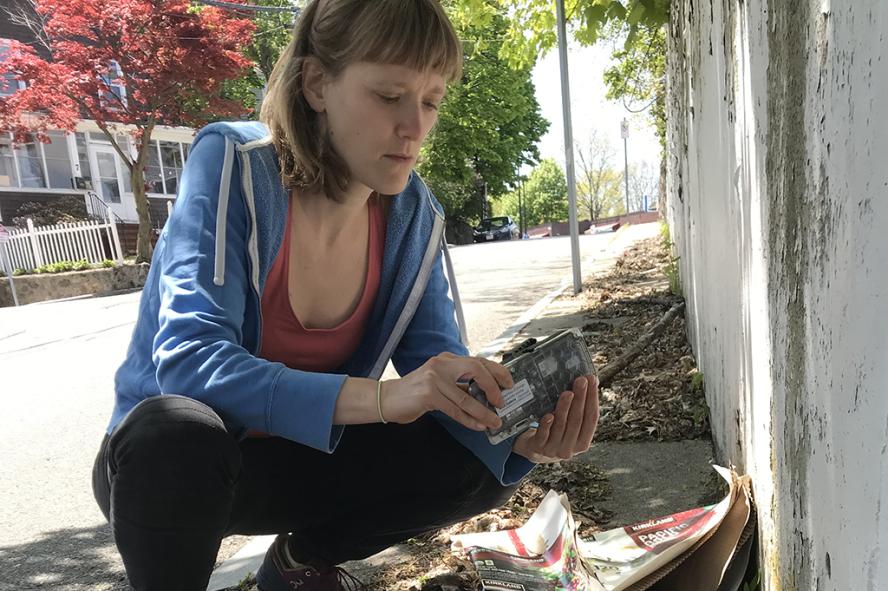-
About
- Leadership & Faculty
- News & Events
-
Academics
- Graduate
- Advanced Clinical Training
- Continuing Education
-
Student Life
-
-
Accommodations
- Our Campus
-
Accommodations
- Graduate Resources
-
-
Research
-
Hospitals & Clinics
- Emergency Care
- Hospital Services
-
Community Outreach
- Volunteer
On Public Health and Rat Risks
Research assistant professor Marieke Rosenbaum says COVID-19 can teach us how to encourage other behavioral changes for health—and plans to test urban rodents.

Like most of us, the faculty and researchers at Cummings School have watched the COVID-19 pandemic develop and spread with a mixture of concern and curiosity.
While none of them were surprised to see a new virus spill over from animals to people, they still have lots of questions about how it’s infecting and affecting people worldwide—and what it will take to bring the U.S. and international outbreak under control.
We asked these experts to share what questions about COVID-19 they’d most like to be able to answer in the months ahead.
Research assistant professor Marieke Rosenbaum, V14, MG14, VG14, is the concentration leader for the Combined D.V.M.-MPH pathway at Cummings School with a secondary appointment in the Department of Public Health and Community Medicine at the Tufts University School of Medicine. One of her areas of research focus is studying Staphylococcus aureus and other pathogens in Greater Boston’s urban rodent population.
“For starters, I wonder what we can learn about behavioral change from this pandemic?” said Rosenbaum. “It’s pretty impressive how quickly we’ve seen mass behavioral change occur in response to this outbreak—from widespread working from home, to teachers connecting with their classes via video, to celebrating birthdays with drive-by parades, to people wearing cloth masks in public.
I’ve found it all quite interesting to watch and to live through, frankly. It’s always been important to think about how you incorporate behavioral change into public-health interventions, whether it’s working to reduce overuse of antibiotics and antimicrobial resistance or to help people stop misusing opioids. Can we harness some of the momentum we’ve seen around COVID-19 and inform effective strategies to encourage other behavioral change for health?
In addition, I recently received a KL2 Career Development Award through Tufts CTSI, which provides funding for two years of protected research time. I’ll be focusing on Boston’s urban rat population. I already have a study underway looking at antimicrobial resistance and how rats might contribute to the spread of resistant genes in the environment that could then transfer to pathogens or other bugs that people are picking up. Of course, now I hope to shift gears and also look for the novel coronavirus in the rodent population.
I’m hoping to investigate if this is a virus that’s jumping from one animal species to another—from humans potentially back into animals—even if it’s not able to become infective and replicate in rats like it can in humans.
Can we then figure out what is driving that transmission, if it’s occurring at all? Because the rats are definitely all going to be exposed to it. And with such a prevalent virus spreading in the community, we have an opportunity to look at how other animal species are or are not picking it up or mounting immune responses to it.”
Read more responses in our “Answers Needed About COVID-19” series from Janetrix Hellen Amuguni, Amanda Martinot, Felicia Nutter, Jonathan Runstadler, Abhineet Sheoran, Charles Shoemaker, Sam Telford, Saul Tzipori, and Chris Whittier.
Department:
Dept. of Infectious Disease and Global Health